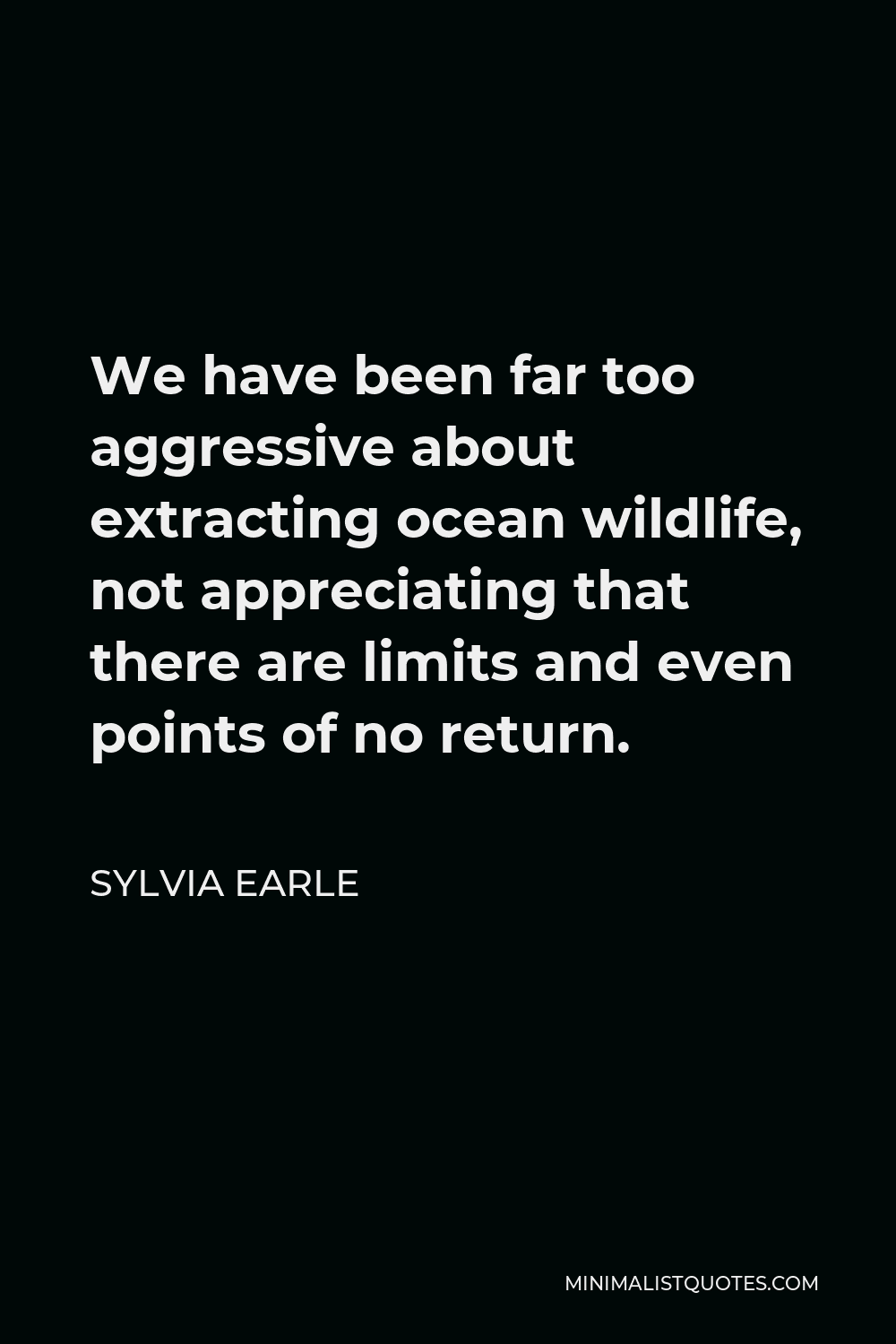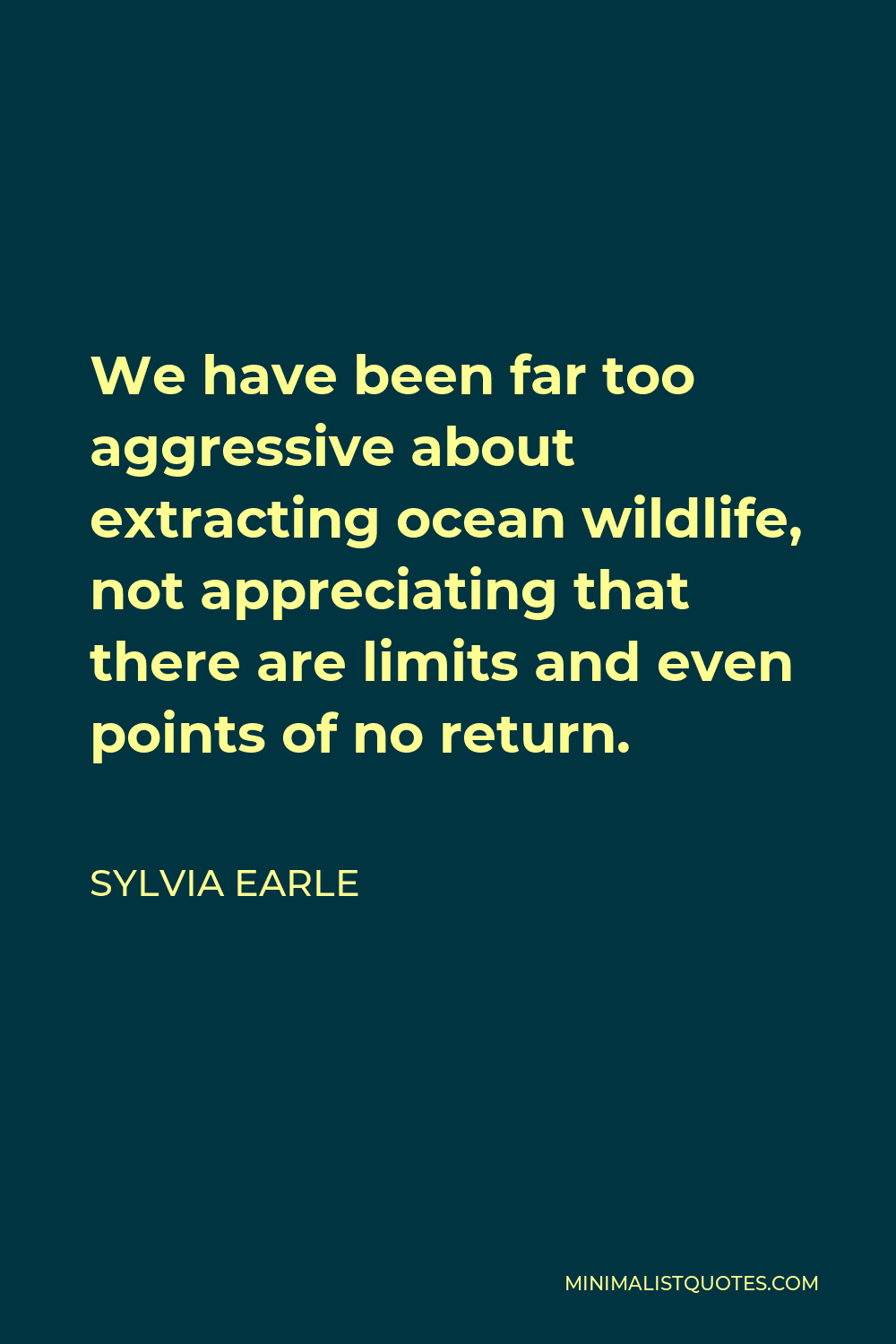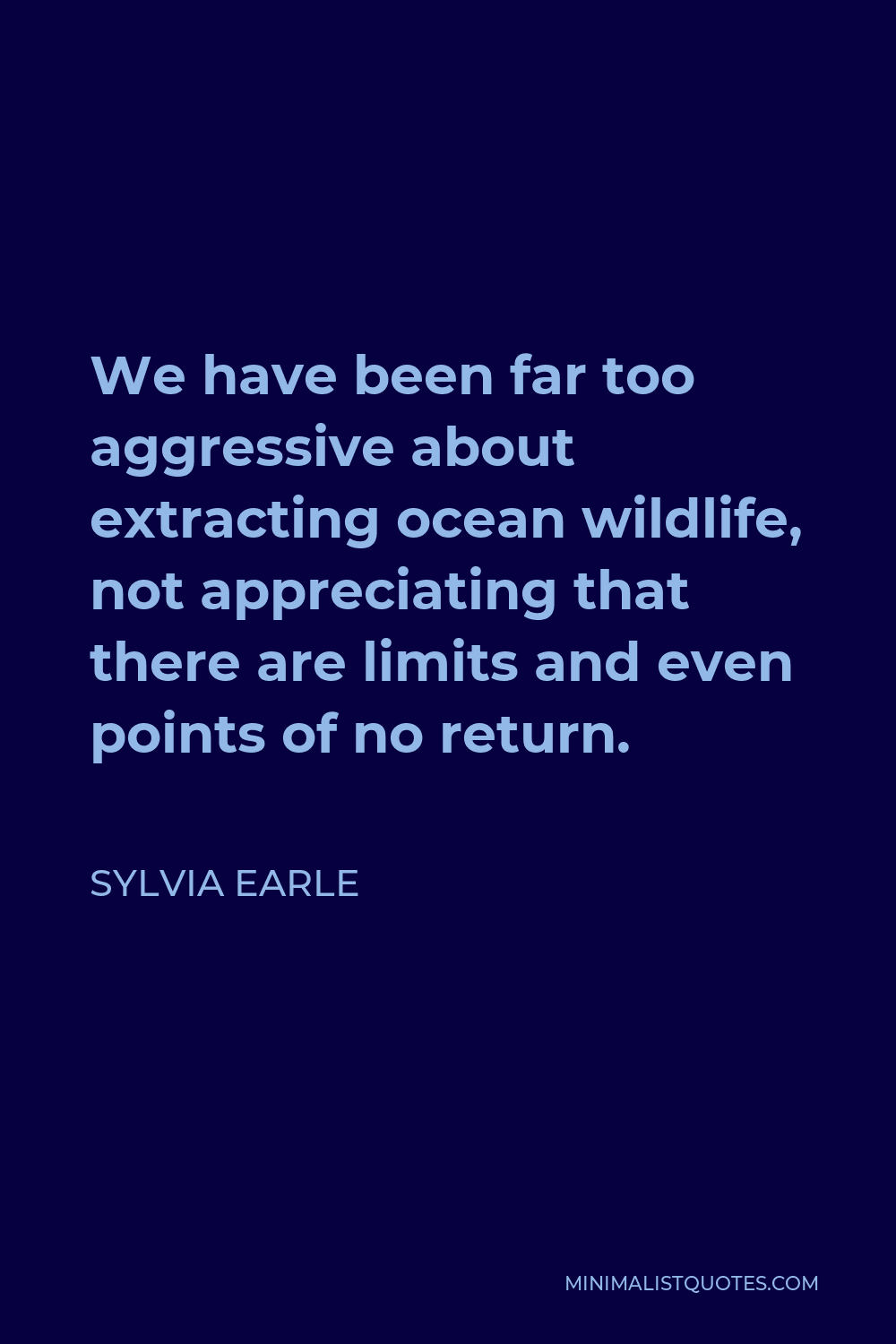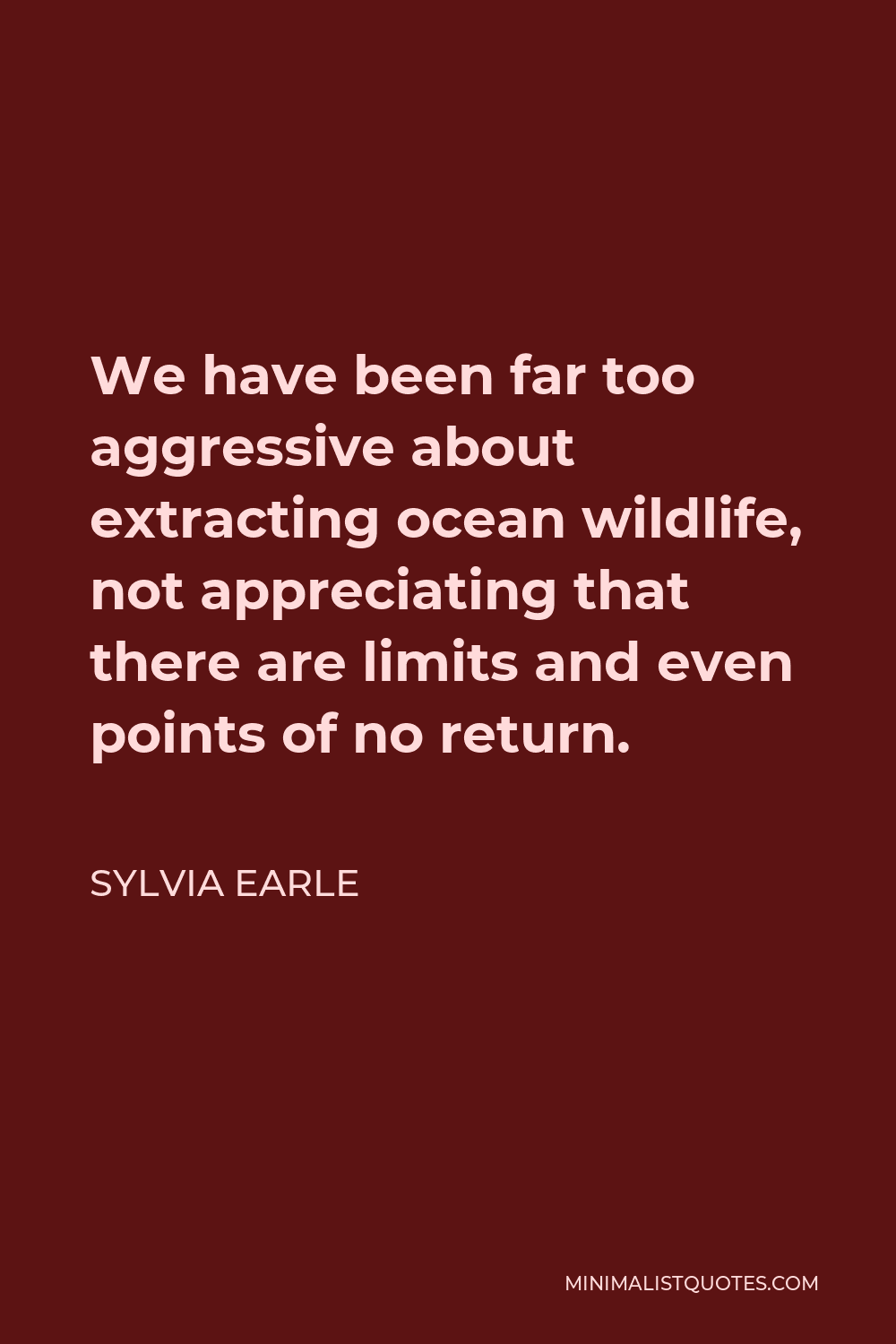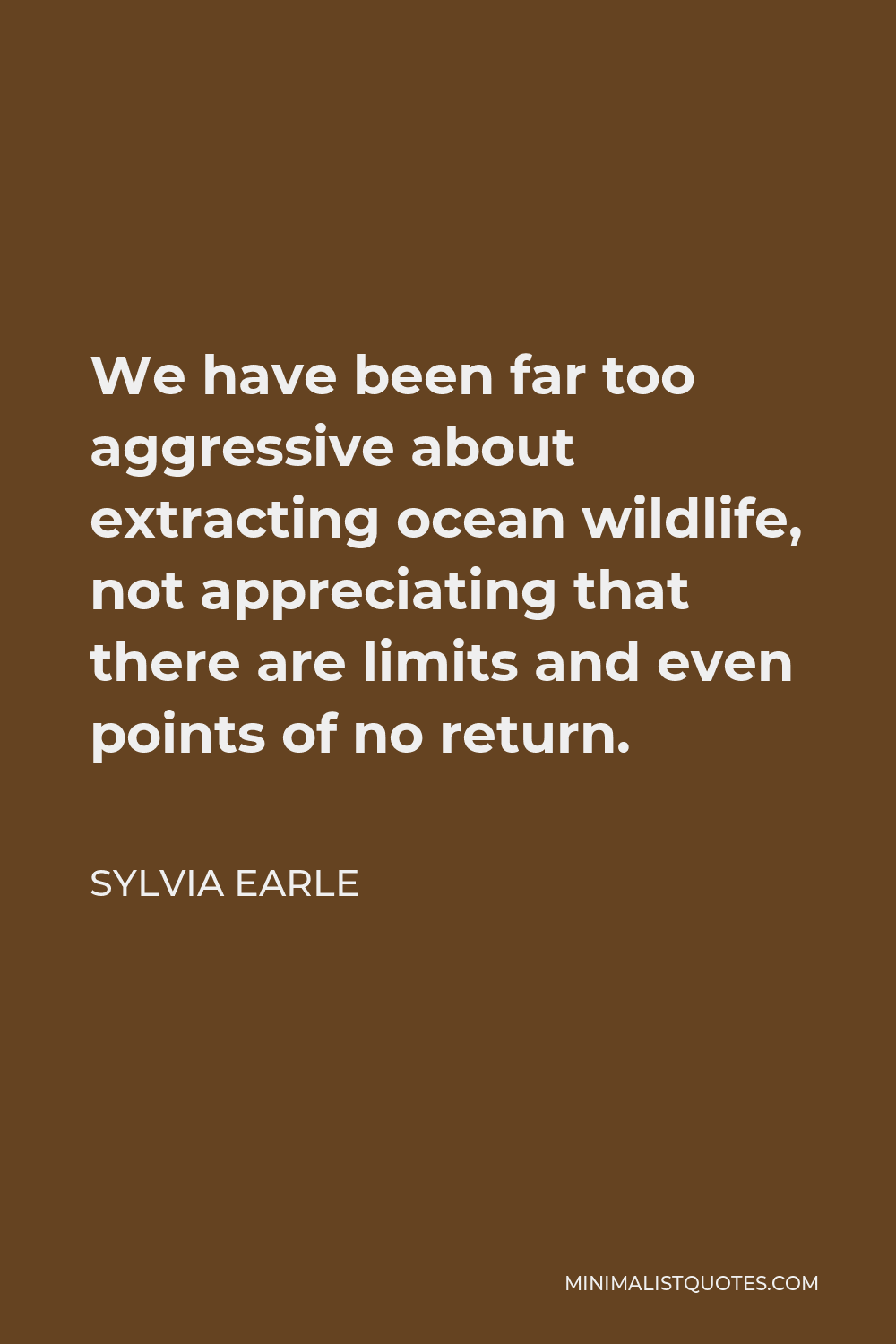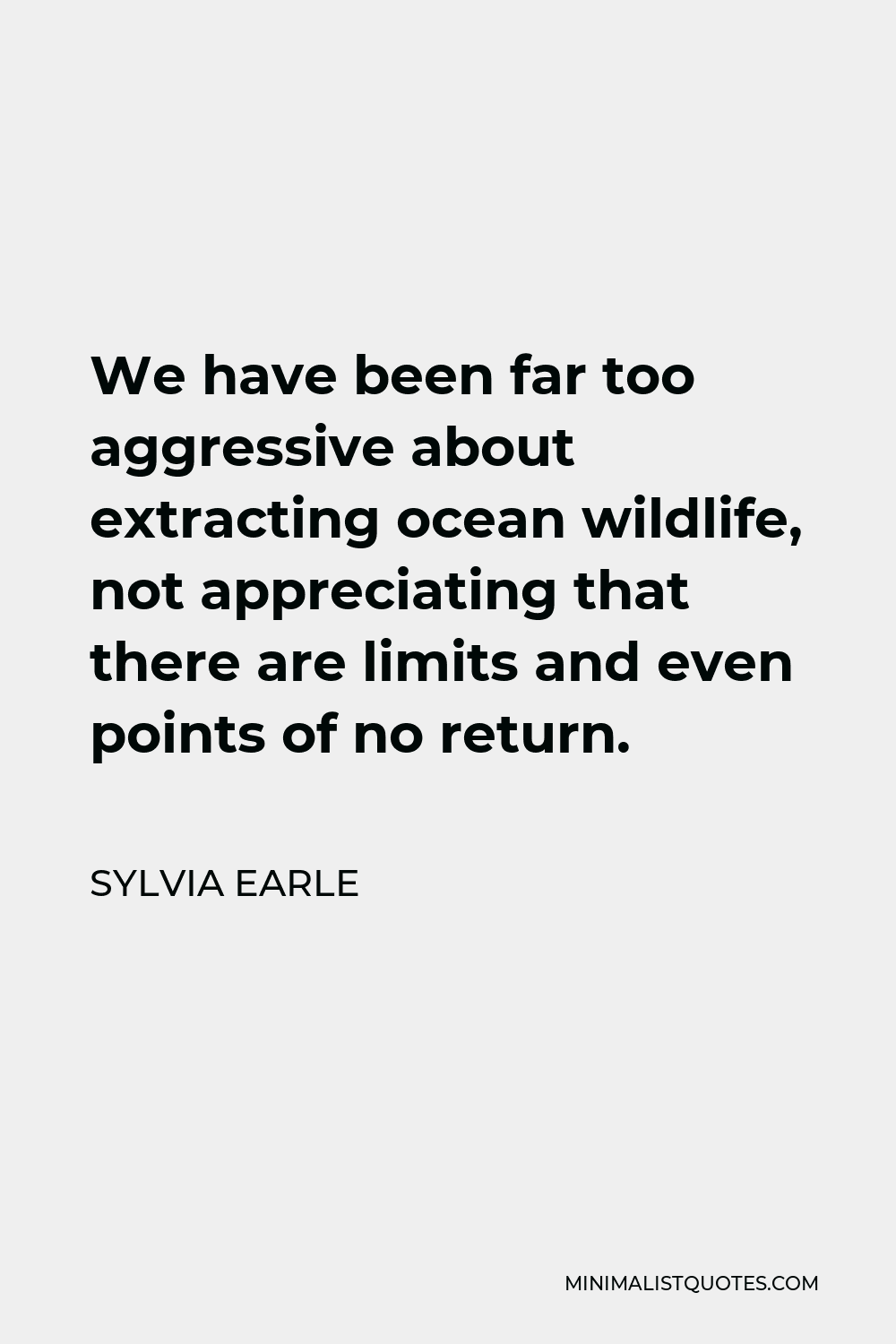By the end of the 20th century, up to 90 percent of the sharks, tuna, swordfish, marlins, groupers, turtles, whales, and many other large creatures that prospered in the Gulf for millions of years had been depleted by overfishing.
SYLVIA EARLEWe have been far too aggressive about extracting ocean wildlife, not appreciating that there are limits and even points of no return.
More Sylvia Earle Quotes
-





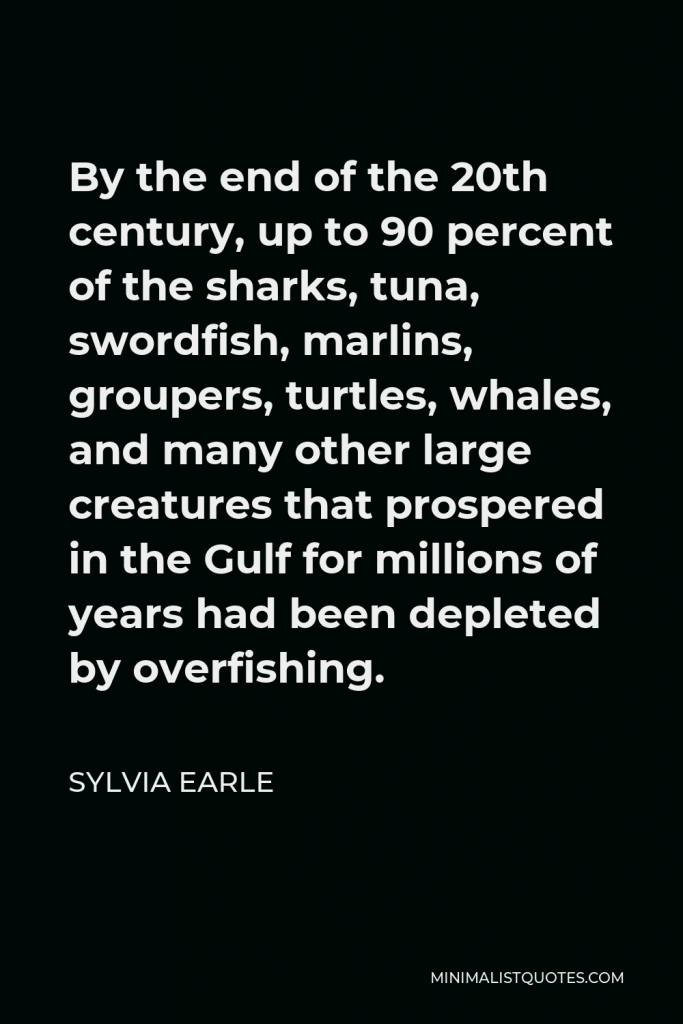

-







I’ve always said, ‘Underwater or on top, men and women are compatible.’
SYLVIA EARLE -





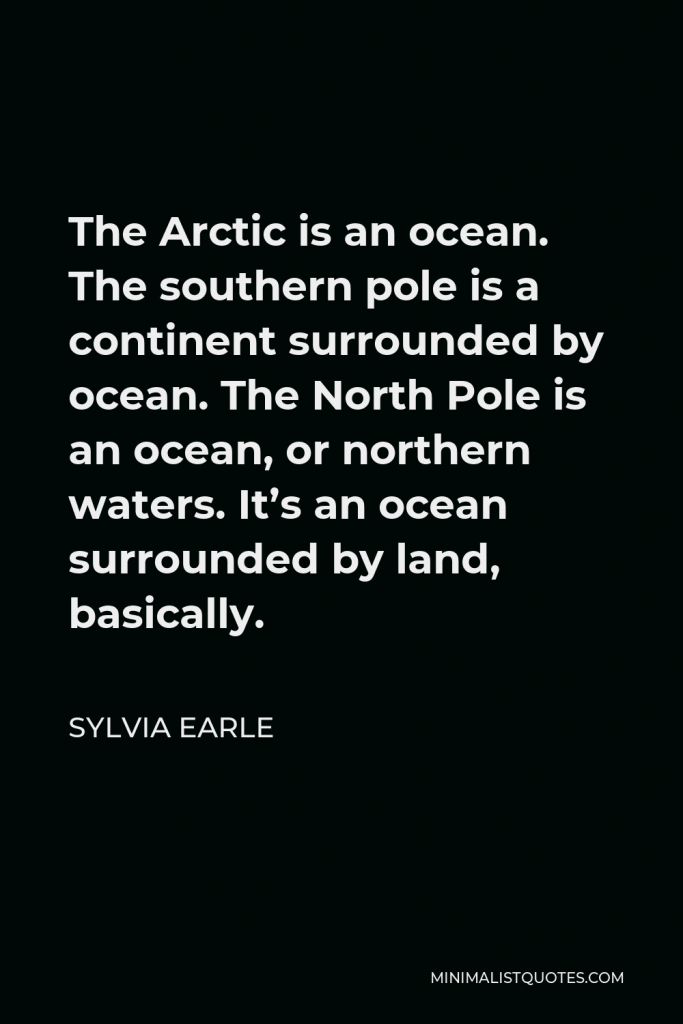

The Arctic is an ocean. The southern pole is a continent surrounded by ocean. The North Pole is an ocean, or northern waters. It’s an ocean surrounded by land, basically.
SYLVIA EARLE -





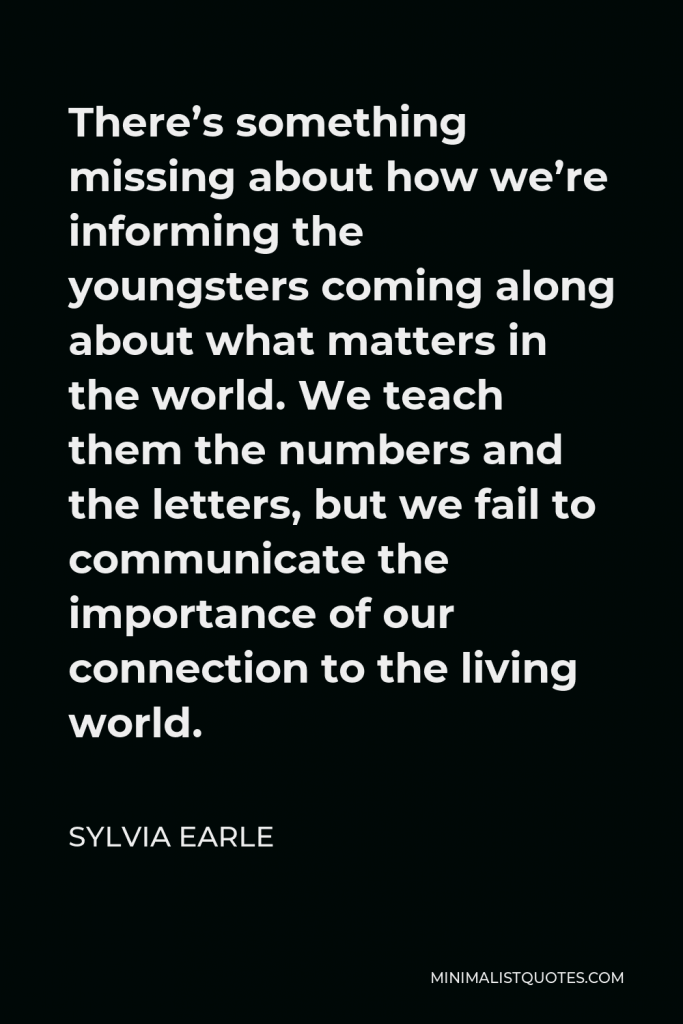

There’s something missing about how we’re informing the youngsters coming along about what matters in the world. We teach them the numbers and the letters, but we fail to communicate the importance of our connection to the living world.
SYLVIA EARLE -







I would love to slip into the skin of a fish and know what it’s like to be one. They have senses that I can only dream about.
SYLVIA EARLE -





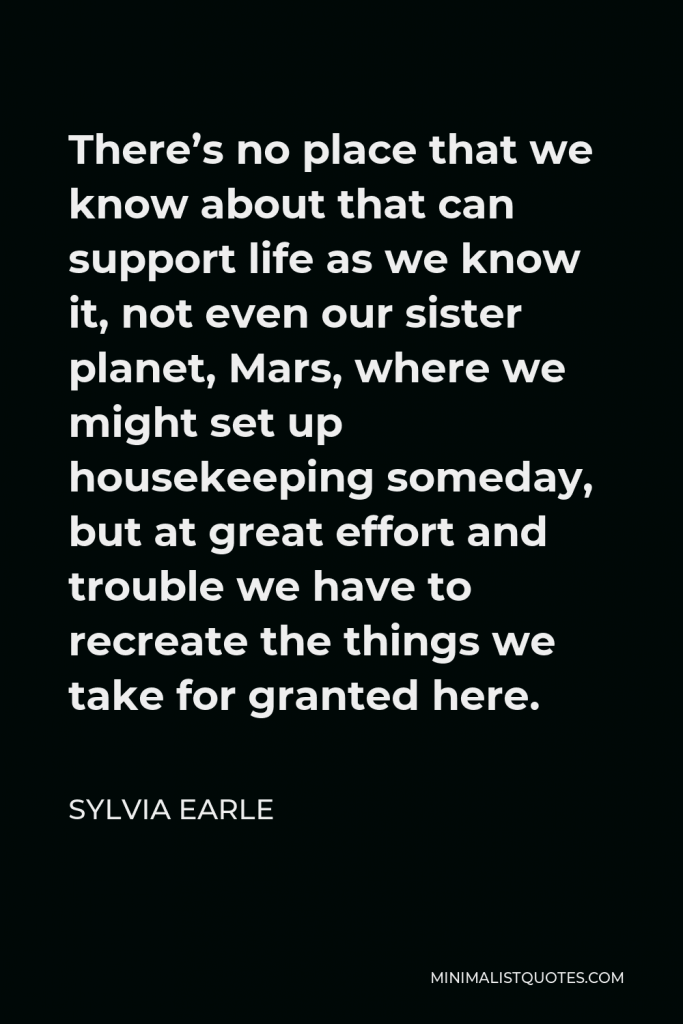

There’s no place that we know about that can support life as we know it, not even our sister planet, Mars, where we might set up housekeeping someday, but at great effort and trouble we have to recreate the things we take for granted here.
SYLVIA EARLE -





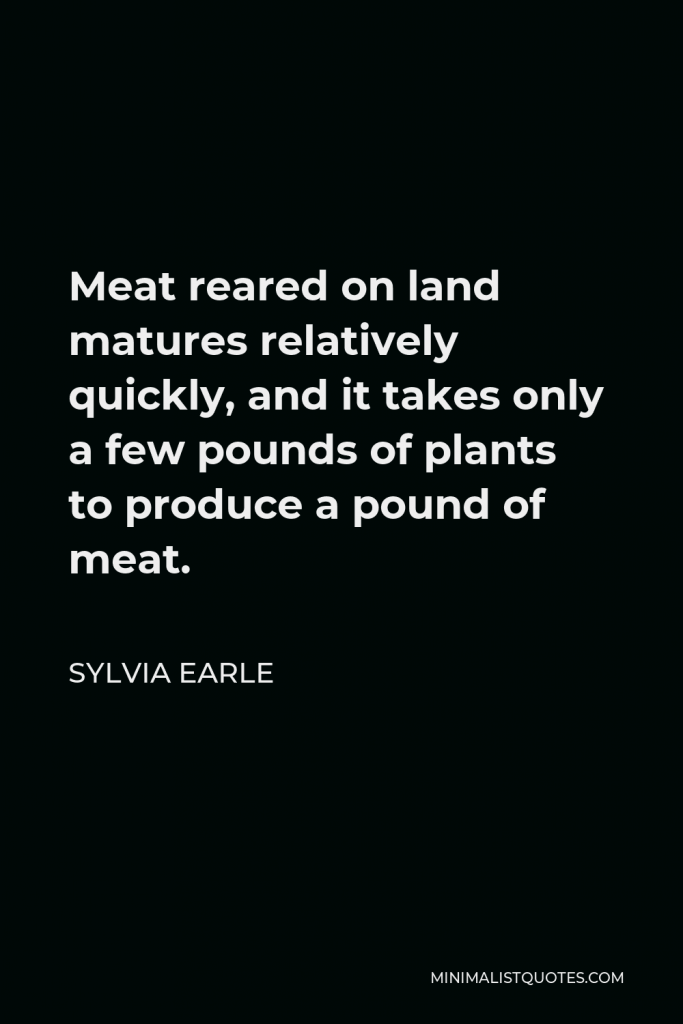

Meat reared on land matures relatively quickly, and it takes only a few pounds of plants to produce a pound of meat.
SYLVIA EARLE -





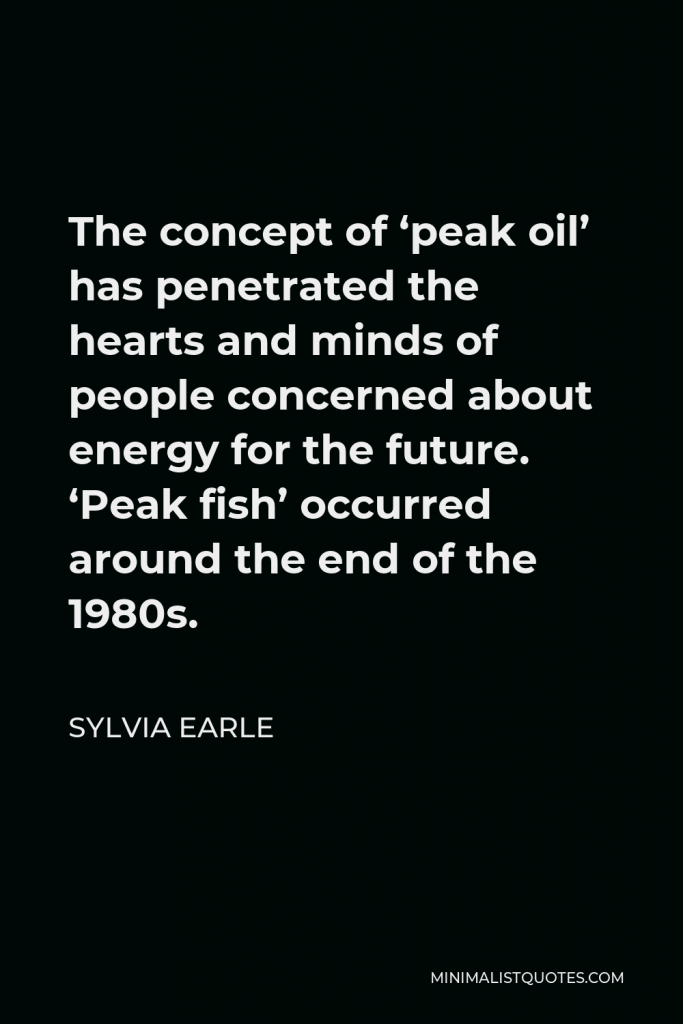

The concept of ‘peak oil’ has penetrated the hearts and minds of people concerned about energy for the future. ‘Peak fish’ occurred around the end of the 1980s.
SYLVIA EARLE -





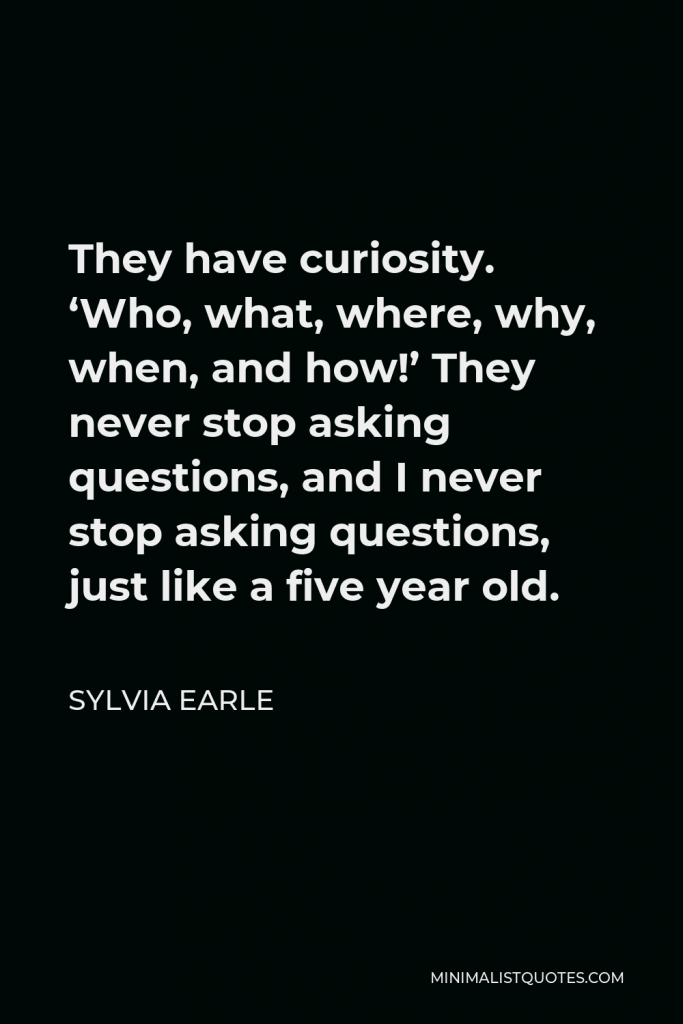

They have curiosity. ‘Who, what, where, why, when, and how!’ They never stop asking questions, and I never stop asking questions, just like a five year old.
SYLVIA EARLE -





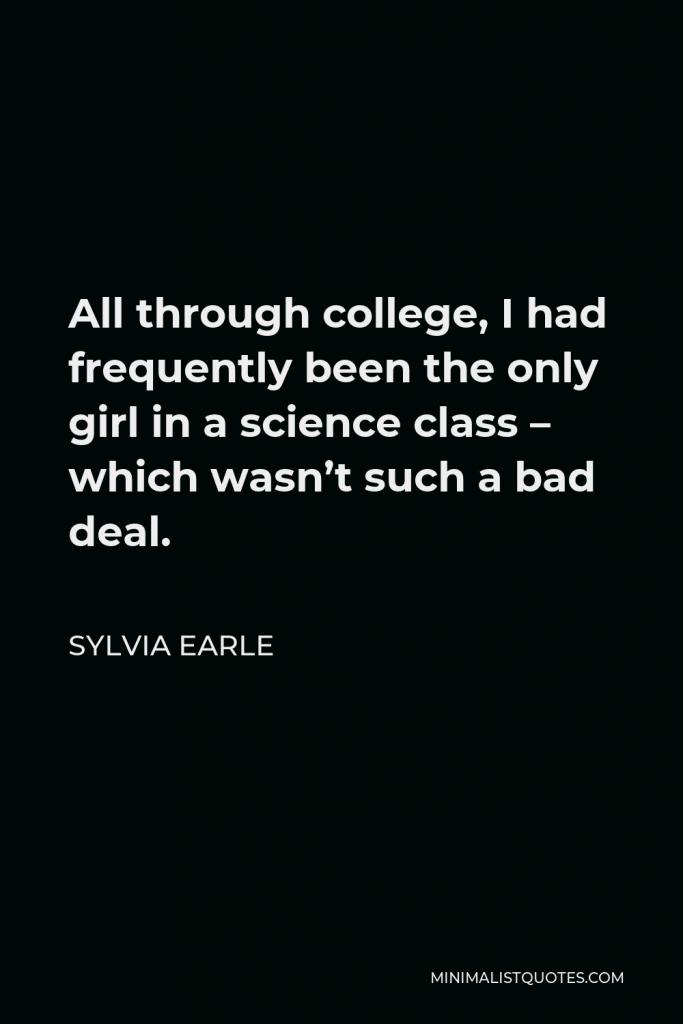

All through college, I had frequently been the only girl in a science class – which wasn’t such a bad deal.
SYLVIA EARLE -





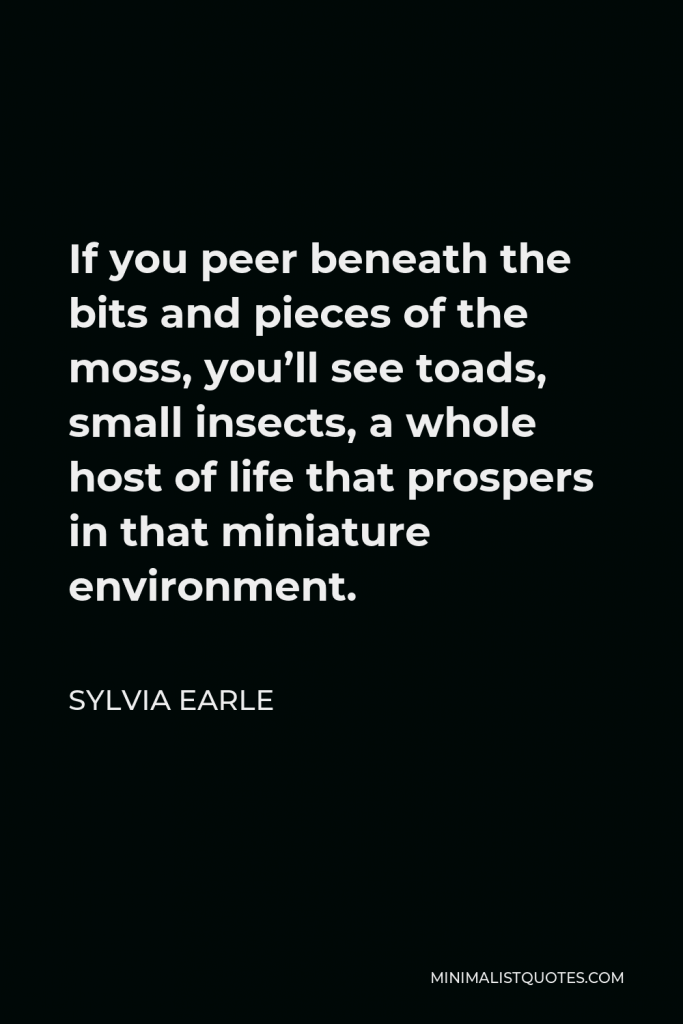

If you peer beneath the bits and pieces of the moss, you’ll see toads, small insects, a whole host of life that prospers in that miniature environment.
SYLVIA EARLE -





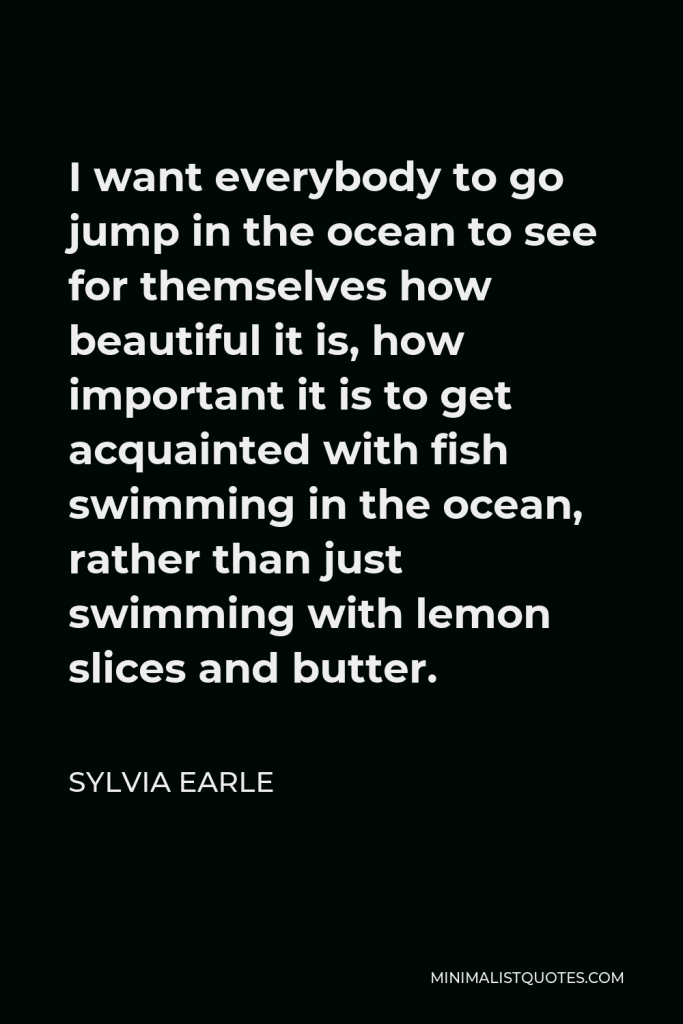

I want everybody to go jump in the ocean to see for themselves how beautiful it is, how important it is to get acquainted with fish swimming in the ocean, rather than just swimming with lemon slices and butter.
SYLVIA EARLE -





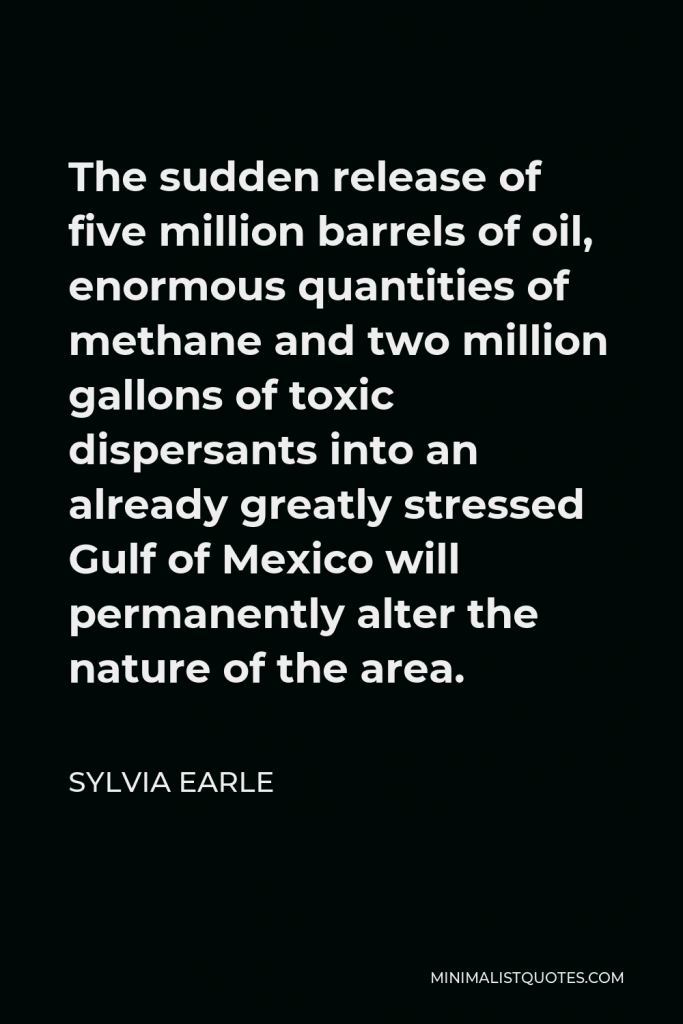

The sudden release of five million barrels of oil, enormous quantities of methane and two million gallons of toxic dispersants into an already greatly stressed Gulf of Mexico will permanently alter the nature of the area.
SYLVIA EARLE -





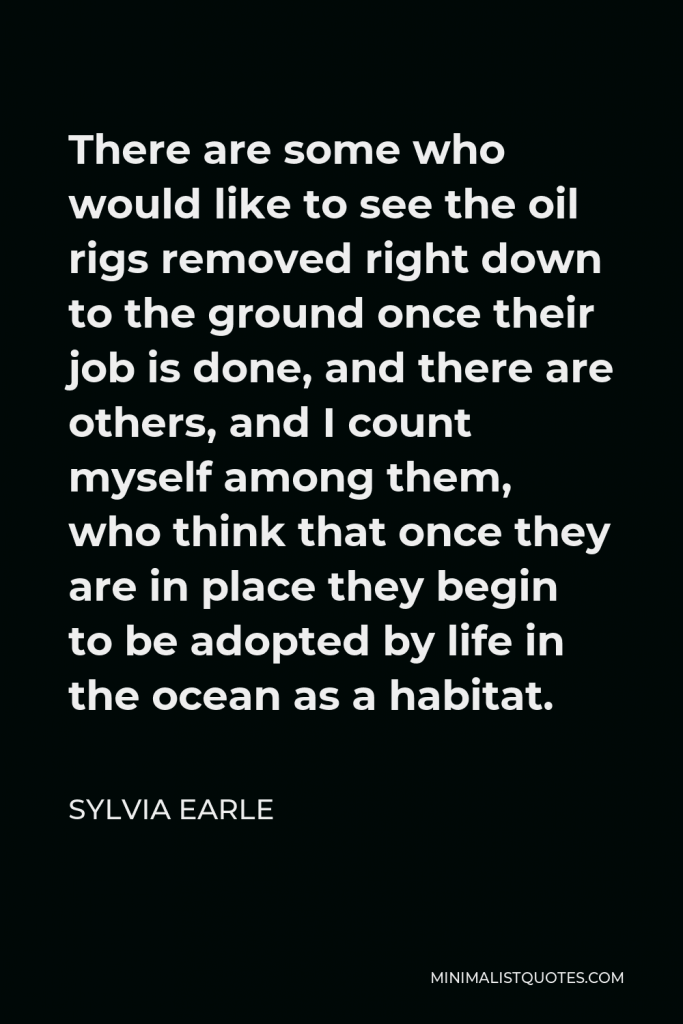

There are some who would like to see the oil rigs removed right down to the ground once their job is done, and there are others, and I count myself among them, who think that once they are in place they begin to be adopted by life in the ocean as a habitat.
SYLVIA EARLE -







Hold up a mirror and ask yourself what you are capable of doing, and what you really care about. Then take the initiative – don’t wait for someone else to ask you to act.
SYLVIA EARLE -





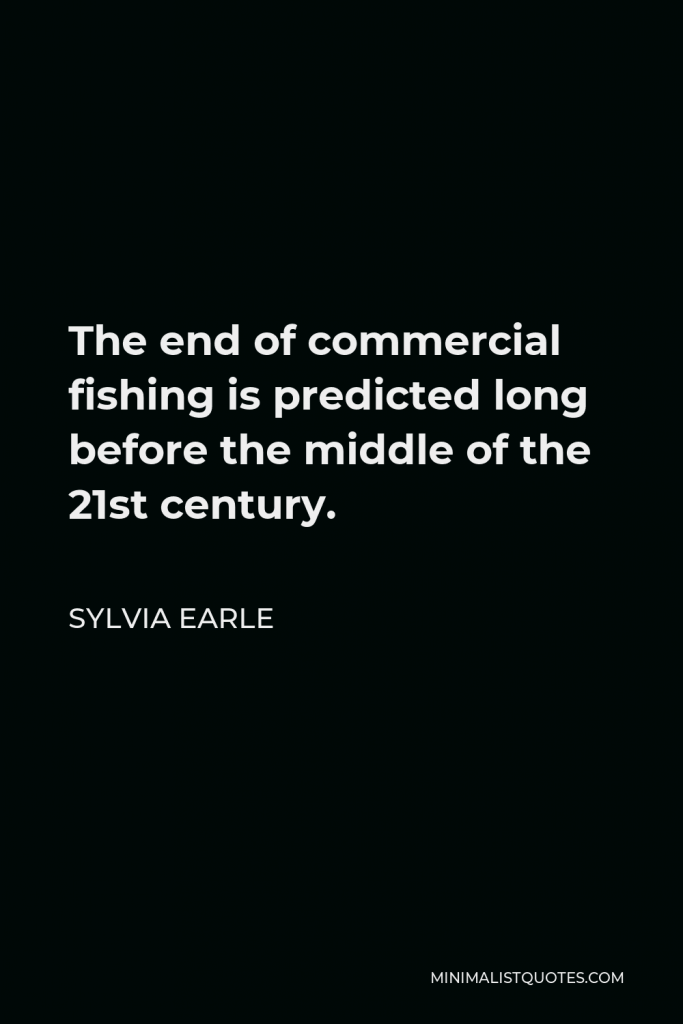

The end of commercial fishing is predicted long before the middle of the 21st century.
SYLVIA EARLE
